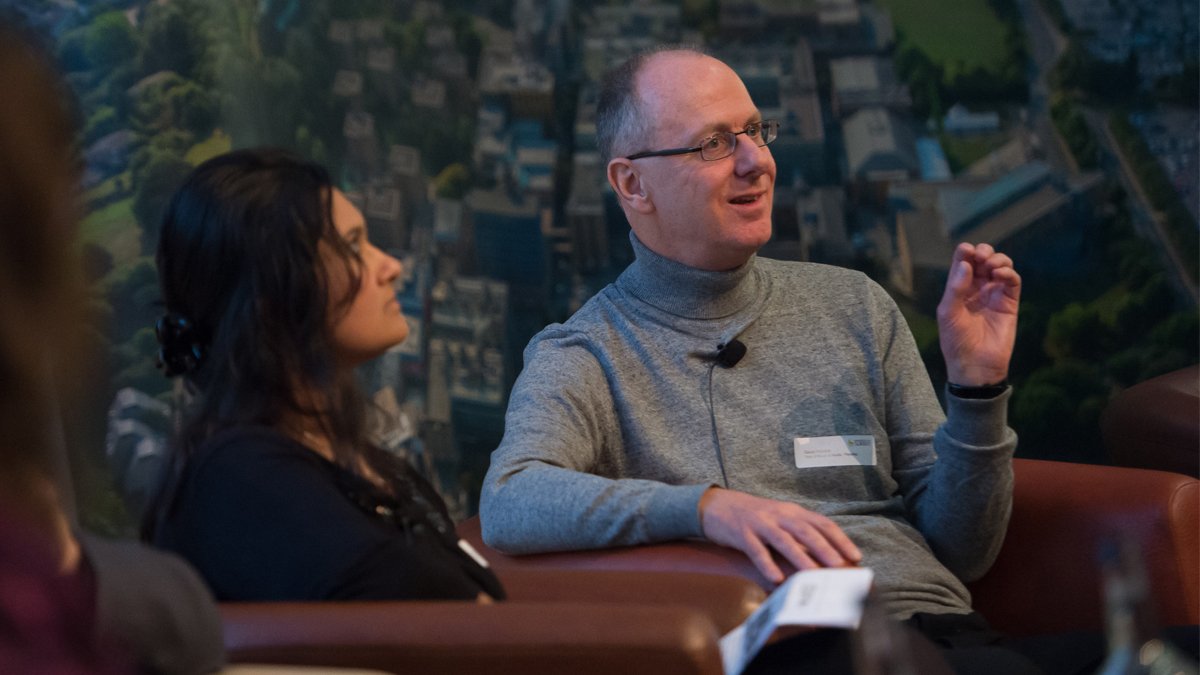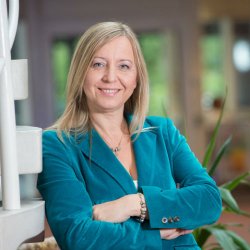Faculty of Arts and Social Sciences Festival of Research 2018 and ‘Technologies Impacting Life’
Digital World Research Centre (DWRC) and Professor David Frohlich featured in the second annual Festival of Research by the Faculty of Arts and Social Sciences here at Surrey, on the panel ‘Technologies Impacting Life’.

This panel explored the ways in which emerging technologies have and will alter society – our choices, experiences and everyday lives – over the next decades. There were some fascinating presentations from Dr Ranjana Das on the future of audiences, Dr Joanna Gough on translation in a globalised economy, Dr Ciaran Gillespie on virtual reality in international relations, and Dr Stephan Ludwig on online firestorms in social media.
The festival is a full day event exploring the intersection between our Faculty’s research and societal pressure points. The keynote speech, ‘How Not to Hate Your Research Collaborators’ by Professor Nigel Gilbert of the Department of Sociology (and co-founder of DWRC) cut straight to the point (answer: Keep Calm and Be Nice); the challenges of interdisciplinary research are particularly relevant to Next Generation Paper. Our project is a collaboration with the Department of Geography at the Open University, seeks to connect paper to the web through augmented reality technology and printed electronics, and involves five disciplines and research groups at Surrey in addition to cultural geography from the OU. These include communication design from DWRC, software engineering from the Centre for Vision, Speech and Signal Processing, hardware electronics from the Advanced Technology Institute, tourism research from the School of Hospitality and Tourism Management, and business research from the Surrey Centre for the Digital Economy.
The contribution of multiple disciplines to digital innovation is well established. Anyone working in the field of interactive system design, for example, will be used to working in teams containing some mix of engineers and computer scientists, social scientists and marketeers, possibly with input from the fields of art and design. This is reflected in the encouragement of interdisciplinary collaboration by funding bodies such as the EPSRC or Innovate UK, and by most models of the design and innovation process which involve cyclical development of system prototypes with strong user engagement.
What is not so well understood, is how exactly to co-ordinate the contribution of different disciplines across the design lifecycle. A serial organisation of contributions is almost never used, for obvious reasons to do with lack of true collaboration between team members. But -- a fully parallel organisation can be chaotic in terms of integrating the findings from different disciplines, and making design decisions.
The NGP project will address this problem by creating a series of augmented travel and photobooks over the next 30 months, with phased contributions from the different disciplines involved. These interactive artefacts each act as a focal point for co-ordinating disciplinary inputs, according to a workplan that’s more a choreographic notation or orchestral score, with room for improvisation.
As digital opens up more borders across disciplines, this ‘disciplinary dance’ will feature more and more centrally in research projects. Remember to Keep Calm.




